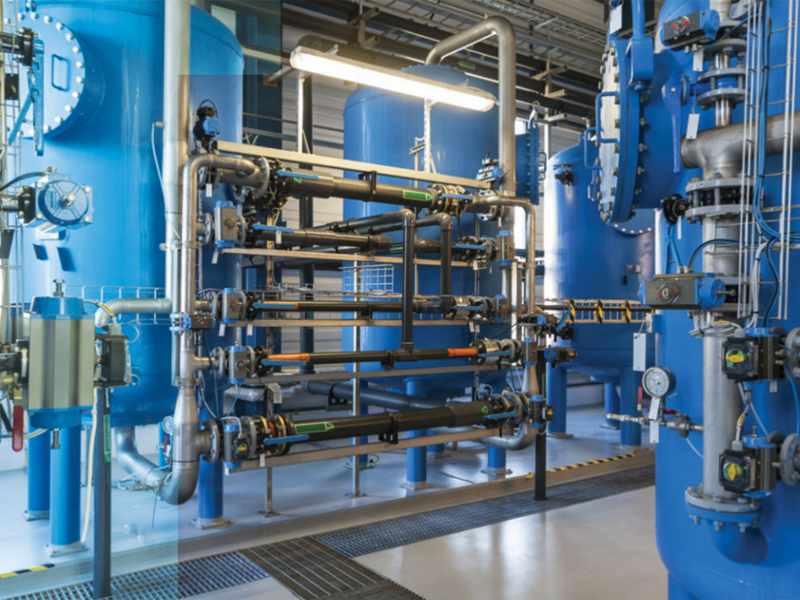Across industries where steam plays a critical role, whether in food processing, textiles, or manufacturing, boiler performance has a direct impact on costs, energy usage, and overall output. As energy prices fluctuate and sustainability becomes a priority, companies are turning to advanced boiler solutions to improve efficiency and reduce operational waste.
In 2025, smart boilers are not just replacing older systems, they’re transforming how industries manage thermal energy. From real-time data tracking to fuel flexibility, these systems offer innovations that align with both economic and environmental goals.

Why Traditional Boilers Are Holding Industries Back
Outdated boilers typically run on fixed cycles, consume excessive fuel, and offer little control over performance. Maintenance is often reactive, leading to unexpected breakdowns and production delays. Additionally, these systems rarely meet modern emission or efficiency standards.
This inefficiency translates into high fuel bills, safety risks, and compliance headaches. As industries grow and environmental regulations tighten, old systems become an unsustainable liability.
The Rise of Smart and Hybrid Boiler Systems
Advanced boiler solutions integrate automation, IoT monitoring, and precision controls. These features allow operators to monitor parameters like pressure, temperature, fuel usage, and emissions in real-time. The result is faster decision-making and the ability to fine-tune operations based on changing demands.
Hybrid systems offer even more versatility. By combining multiple energy sources, such as biomass, gas, or electricity, they provide resilience against fuel shortages and cost spikes. This approach not only saves money but also supports energy diversification strategies.
Direct Cost Savings Through Efficiency Gains
Modern boiler systems recover heat from flue gases, reuse condensate, and adjust operation cycles dynamically to minimize fuel consumption. These improvements alone can reduce energy costs by up to 30% compared to older setups.
Reduced fuel use also lowers carbon emissions, helping businesses align with green energy targets or meet certification standards. For many companies, these upgrades are quickly offset by savings in fuel and maintenance within the first two years.
Enhanced Safety and Remote Monitoring
One of the strongest features of advanced boiler systems is the ability to control and monitor performance remotely. In industries where safety is paramount, real-time alerts and automatic shutdown features reduce risk and ensure compliance with safety protocols.
Operators no longer need to rely solely on manual checks. Remote diagnostics also speed up maintenance, minimize downtime, and prevent costly accidents or emergency repairs.
Integration into Sustainable Manufacturing
As industries shift toward cleaner production models, advanced boiler solutions play a central role. By using biomass or energy-efficient burners, many new systems are compatible with sustainable fuel sources. This integration helps companies reduce their environmental footprint without compromising performance.
Additionally, smart controls help balance thermal loads, reducing unnecessary energy use during low-demand periods. Over time, this promotes a more sustainable energy profile without sacrificing output.
Spenomatic Kenya Limited: A Trusted Partner in Boiler Innovation
At Spenomatic Kenya Limited, we provide cutting-edge steam solutions tailored to local industrial needs. Our advanced boiler systems are engineered for high efficiency, low emissions, and flexible integration into existing operations.
We focus not just on installation, but also on long-term performance. Through customized control systems, real-time support, and operator training, we ensure your investment continues delivering value long after commissioning. With a track record across sectors, Spenomatic remains a preferred partner for industries seeking reliability, efficiency, and sustainability.
Conclusion
The move to advanced boiler solutions isn’t just a tech upgrade, it’s a strategic shift that cuts costs, boosts productivity, and reduces environmental impact. With smarter systems in place, industries gain better control, save on fuel, and stay ahead in an increasingly competitive market.
As energy demands rise and efficiency becomes non-negotiable, now is the time to make the switch. Backed by providers like Spenomatic Kenya Limited, the journey toward a leaner, cleaner steam system is well within reach.
FAQs
1. What makes a boiler system “advanced”?
It includes features like automation, real-time monitoring, energy recovery systems, and often supports multiple fuel types for improved efficiency and flexibility.
2. Can advanced boilers be integrated into existing setups?
Yes, many systems are designed to retrofit or integrate with older infrastructure while still delivering performance gains.
3. How soon can businesses expect returns after upgrading?
Most companies begin to see fuel savings and lower maintenance costs within the first 12 to 24 months of installation.
4. What advanced boiler solutions does Spenomatic Kenya Limited offer?
We provide high-efficiency boilers with smart controls, fuel-flexibility options, and customized monitoring systems designed for industrial environments.
5. Why choose Spenomatic for boiler upgrades?
Our experience, hands-on support, and locally tailored technology ensure lasting results, from installation through ongoing optimization.

